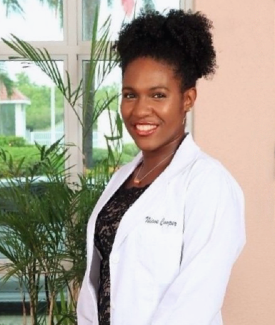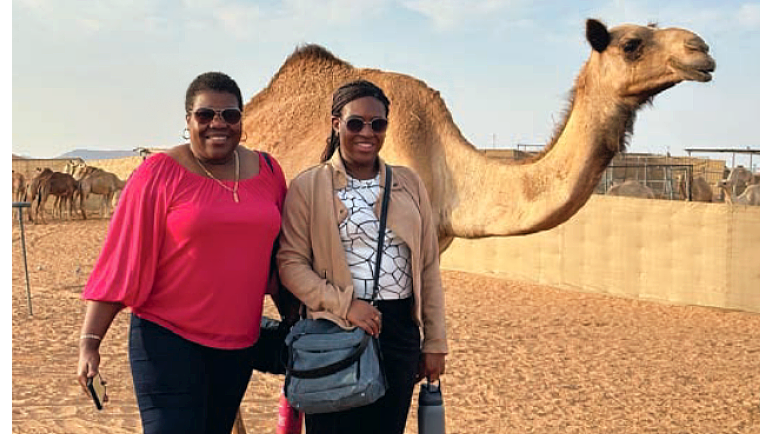Growing up with a mother who was an officer in the U.S. Navy helped Nicolé Cooper understand the value of leadership and service early on. When Cooper graduates from Rush with her master’s degree in respiratory care this spring, she will live those values as an officer in the Commissioned Corps of the U.S. Public Health Service (USPHS).
“You can do so much with a degree from Rush,” Cooper says. “It will let me advance my career a lot better than if I completed a bachelor’s or associate’s degree.”
A unique opportunity for emerging leaders

Cooper was accepted into the prestigious Senior Commissioned Officer Student Training and Extern Program (SRCOSTEP), which is available to full-time students entering their final year of professional or graduate education.
Through the program, Cooper received a salary that covered her last year of tuition at Rush. In return, she will give back two years of service as a respiratory therapist at a 32-bed hospital on the Rosebud Indian Reservation in South Dakota after graduation. Before heading to South Dakota, she will complete two weeks of leadership training for officers.
She believes the leadership skills she has gained from her time at Rush will help prepare her for her officer role. “I’ve had the opportunity to work with respiratory therapists who are critical thinkers, who have more autonomy, who take the initiative to do what’s right and who show me how to advocate for the patient,” Cooper says.
“I have so many opportunities to be exposed to leadership positions at Rush. That is the biggest advantage Rush has afforded me, especially when moving forward in my career.”
Nicolé Cooper, respiratory care grad and USPHS officer
Building leadership acumen
Rush offers one of the few graduate-level respiratory care programs in the United States, providing students like Cooper with unmatched opportunities to get a head start as respiratory care leaders.
“Our program gives students skills they can transfer to any kind of work environment, from an academic environment here at Rush to a more rural area like a reservation,” says J. Brady Scott, PhD, RRT-ACCS, AE-C, FAARC, FCCP, associate professor and respiratory care program director. “Our job is to prepare them for wherever they decide to go and live their own dreams.”
Cooper, who grew up in Jamaica and came to the U.S. when she was eight years old, appreciates the interaction she has had with different types of respiratory care leaders at Rush. “Whether I want to be a manager, teacher or researcher, I have so many opportunities to be exposed to leadership positions at Rush,” she says. “That is the biggest advantage Rush has afforded me, especially when moving forward in my career.”

